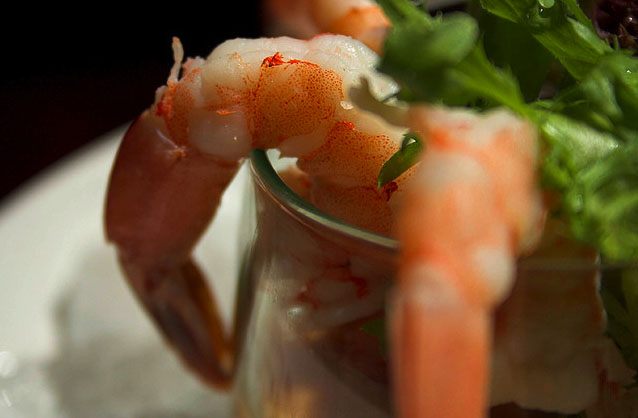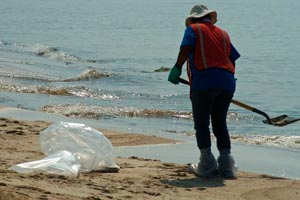Researchers at Oregon State University are finding elevated concentrations of carcinogenic chemicals in the Gulf of Mexico as they investigate the lasting impacts of the BP oil spill. Specifically, researchers are finding high levels of polycyclic aromatic hydrocarbons (PAHs), which are found in crude oil, in some areas of the Gulf.
Via OSU’s release:
Oregon State University researchers began testing for the contaminant May 9, and preliminary results, which have not yet been fully analyzed, suggest that the level of PAHs in the water off the coast of Louisiana experienced a 40-fold increase from May to June. The July data was lost when the device the OSU team uses for water sampling disappeared.
However, an initial analysis of the August data continues to show abnormally high levels of PAHs, similar to the 40-fold increase discovered earlier in the summer, said Kim Anderson, a professor of environmental and molecular toxicology in OSU’s College of Agricultural Sciences.
This is a concern not only for those who are living or working in the region, but for anyone who eats Gulf seafood as well. As a recent piece published in the Journal of the American Medical Association noted, “Although vertebrate marine life can clear PAHs from their system, these chemicals accumulate for years in invertebrates.” This of course raises concerns about the long-term safety of seafood—specifically, shrimp, oysters, crabs, and other invertebrates.
The researcher outlined the potential problems with high PAH levels:
In some cases, they are a significant toxicological health concern. Of the more than 100 chemicals that make up the class, a fraction of them can result in harmful health effects after exposure.
“There are a range of health effects associated with PAHs,” said Anderson. “They are toxic by several different modes of action. We’re now using a technique that looks at the fraction of PAHs that are bioavailable – that have the potential to move into the food chain.”
There are also concerns about a specific type of PAH that contains oxygen, or OPAHs—the production of which the researchers say may have been increased by the use of chemical dispersants to break down the oil. This type is more mobile and stays in the environment longer.
Still more evidence that, just because you can’t see the oil in the Gulf, that doesn’t mean it’s not there.














